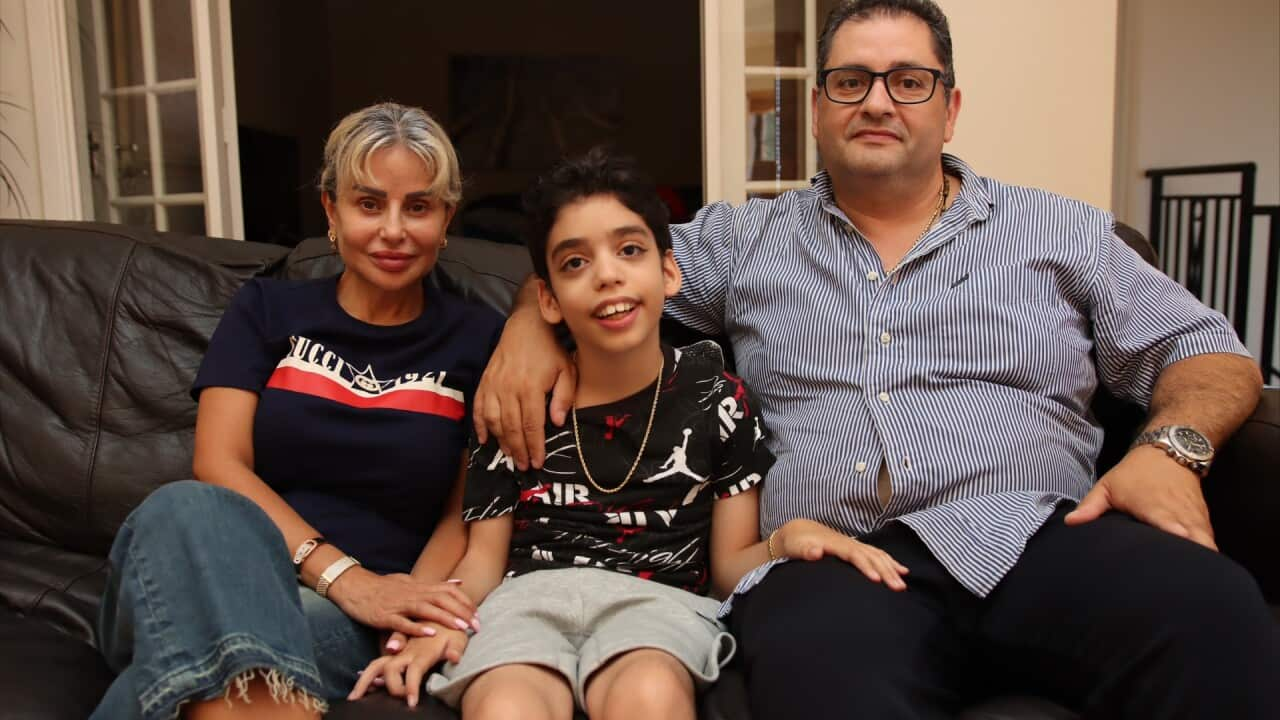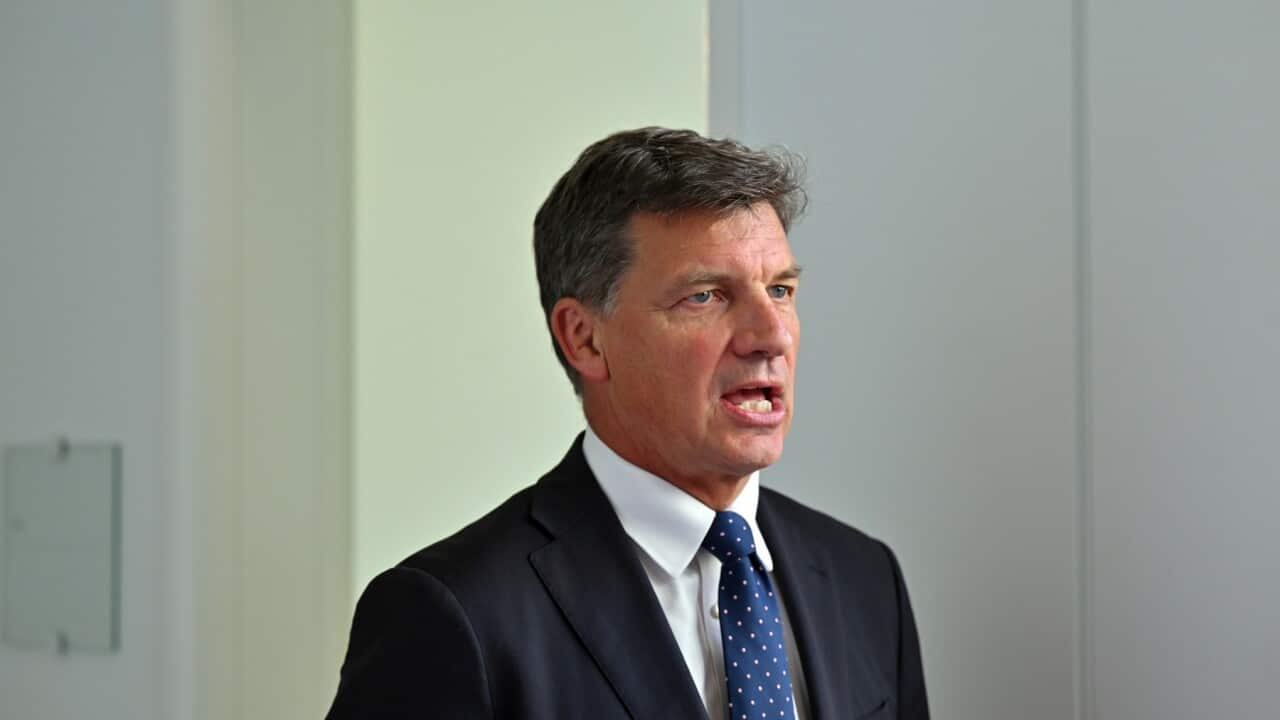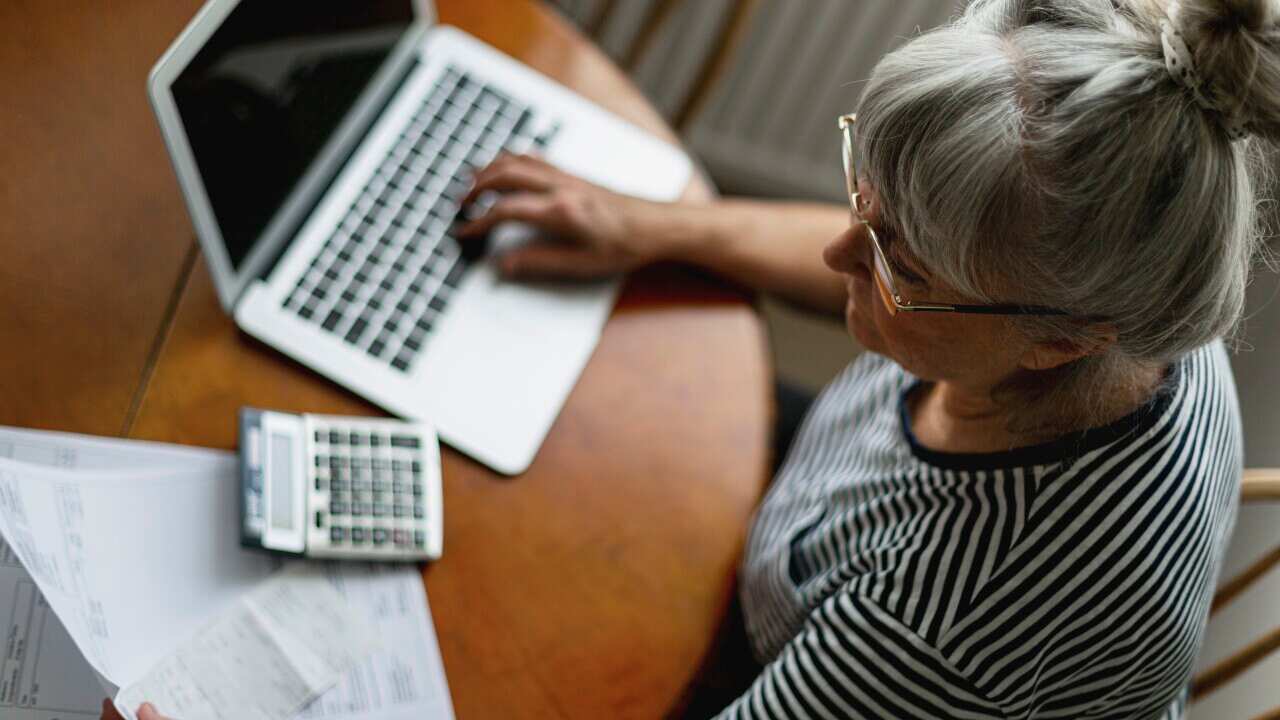Eleven-year old Alicio Haddad speaks Arabic, French and English, he is popular at school and says he wants to be a police officer when he grows up.
"I am Alicio. I want to stay in Australia. I like science - and I like eating food. And like cars because my dad owns cars over there. Yeah, that's all."
The year six student was born prematurely in Lebanon, with cerebral palsy.
He and his family moved from to Australia in 2016.
His father, Pierre Haddad, took up a job in aged care, after arriving in Perth in 2015 on a temporary visa.
The family then applied for permanent visas in 2021, but the application was rejected by the Immigration Department because of Alicio's medical condition.
Pierre Haddad says outdated migration laws are holding his family back.
"It's a shame because like, you know if Alicio had some special need, it doesn't mean he doesn't belong to the community or whatever but because he's a good factor in the community and he's, he's an asset. I think my son is lovely, well educated, going to primary school, finishing this primary school, going to high school next year. And I think he's doing good, able to walk with the walker. The only thing Aliccio needs is some physio therapy and a lovely family like the family we have with his brother over here to be able to live a beautiful life."
The Government's medical assessment of Alicio estimated that over ten years, his public health care costs would amount to over $600,000.
That figure includes disability services and special education needs.
Disability advocates say no family should face deportation because they have a child living with a disability.
Suresh Rajan is a board member for People with Disability Australia. He says the method of cost calculation by the government is flawed.
"Some of the things that are contained usually in the Commonwealth medical offices reports are such things are calculations for such things as special schools. The reality is that Aliccio doesn't go to a special school. He goes to Como Primary School. It is not an issue. From his perspective. He is not going to incur any expenses related to that special school because he isn't using it."
He says the government's medical assessment doesn't properly consider Alicio's individual case - and the supports he has in place.
"We know that cerebral palsy does not impact on everyone in exactly the same fashion in Alyssia as case is an incredibly articulate young fellow. We've had conversations with him he speaks a number of languages. He is very, very bright. The Commonwealth medical officer has made no contact with the family no actually contacted the child and understood what the issues are."
WA Greens senator Jordan Steele-John says the current threshold for medical costs is exempt from the Disability Discrimination Act - and that it needs changing.
The Federal governemnt says it has begun preliminary work on the issue since coming into power in 2022, including "the current review of the cost threshold" which has been said to be "the next logical step in the process".
Disability advocates say Australia's threshold is remarkably low, when compared to countries like New Zealand and Canada.
In Australia, the public cost of an applicant's medical conditions cannot exceeds $51,000 over 10 years.
The Australian Human Rights Commission says the laws are at odds with the United Nations Convention on the Rights of Persons with Disabilities.
Suresh Rajan says the medical costs for migrants with disabilities should be weighed against their social and economic contributions.
"We continue to provide that human rights, I guess violation that we have perpetrated for a number of years where we do not allow people with disability to or the family of people with disability to come into this country and to remain here as permanent residents is quite inappropriate and defies everything that's relevant and stated in the United Nations Convention of the Rights of People with disabilities."
After years of waiting, the Haddads will learn their fate at an Administrative Appeals Tribunal hearing on January 30.
If Alicio is rejected, the family will have one final chance of appeal, through a Ministerial Intervention.
If that fails, they will have to leave the country.
Pierre Haddad says he remains hopeful.
"You know we'll get somewhere with our case, with Aliccio's case because we didn't do anything bad in this country. We're all clear. You know, like we've been paying tax, being good resident. So I think we've been doing whatever the Australian Government want us to do. And then I think we have the chance to be here more than anybody because we've been here for seven years, or eight years now."













